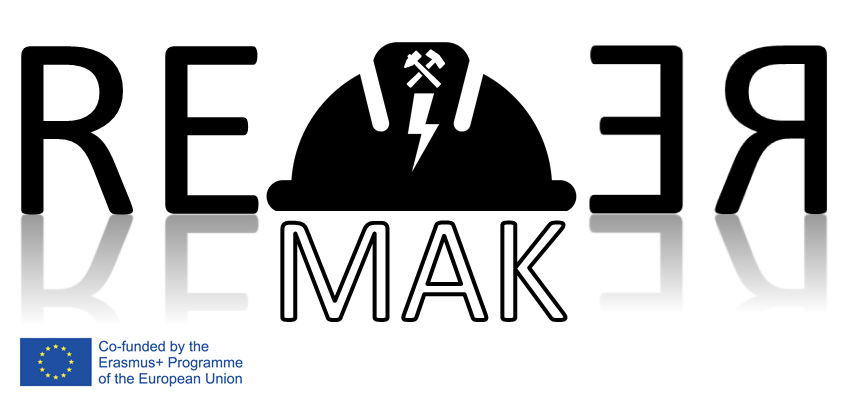European Union (EU) directives and regulations assume that by the year 2030, there will be a reduction in greenhouse gas emissions by at least 55%, compared to 1990, and at least 32% share of renewable sources in final energy consumption. This means that there will be a significant change in the workforce distribution between different industrial sectors during the next decade due to the enforced necessity of decreasing the production and use of fossil fuels. It is a huge challenge for the industrial sectors where fossil fuel mining, production, and usage have been the biggest and most resource-consuming industrial fields.
Staff from the Department of Electrical Power Engineering and Mechatronics in Tallinn University of Technology (TalTech) are leading a new Erasmus+ KA2 project titled "Retraining of Fossil Fuel Mining Area Workforce for Modern Industry ", project acronym REMAKER (KA220-HED-3EF02A02).

The main expected results of the REMAKER project are a joint effort of all the consortium partners from Estonia, Poland, Germany, and the Czech Republic in developing retraining courses and respective modules for the mining-related workforce that may lose their job due to new regulations and highly probable decrease of the fossil fuel mining and processing industry. The main objectives will be to develop retraining modules on modern mechatronics for two target regions (Ida-Virumaa County in Estonia and Silesian region in Poland). The retraining modules will consider the rules and requirements of national professional education systems and the traditional industrial character of the target areas.
Estonian Ida-Virumaa County has historically been the area where oil shale is mined and processed and used for fuel in electrical power plants, generating energy for the whole country. Additionally, oil shale is the resource used to produce shale oil, used as fuel in ships and heavy industry. Around 80% of oil shale used globally is extracted and used in Estonia. Due to EU policies, these fossil fuel industries are destined to decrease, meaning that a vast number of the workforce will lose their traditional jobs and must be transitioned to other industrial sectors.
The Silesian region in Poland has always been the heart of the Polish coal mining industry. For historical reasons, but also because of Poland's available natural resources, the energy industry in the country is based primarily on coal. The share of energy generated from this particular fuel in 2020 was nearly 70%. Like the situation in Estonia, the mining and coal processing industry will decrease in size, meaning again that many coal mining industry workers must find their place in other fields. Estimates included in the "Poland's Energy Policy until 2040" say that by 2040, the transition capacity of the fossil fuel-related workforce to other industry sectors will create up to 300 000 jobs.
To meet the requirements of modern industry (including Industry 4.0 demands), the REMAKER project proposes retraining courses for the soon-to-be-available workforce. The project's main topic is Mechatronics engineering, an interdisciplinary branch of engineering that focuses on electronic, electrical, and mechanical engineering systems. Focused fields are strongly interconnected and overlapping, and they can be considered the main technological pillars of the modern mechatronics-oriented industry of the 21st century. The retraining will include electrical drives, automation, robotics, power electronics, and condition monitoring of industrial systems.
Further information:
Anton Rassõlkin, PhD
Tenured Assistant Professor of Mechatronics
Programme Director (Mechatronics - English)
Department of Electrical Power Engineering and Mechatronics
Tallinn University of Technology
